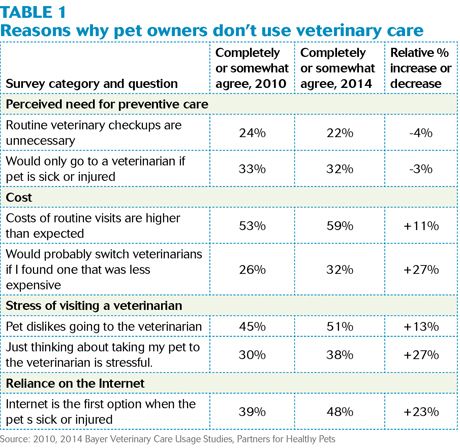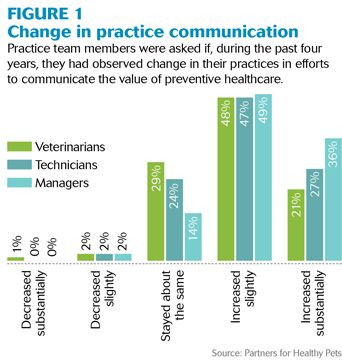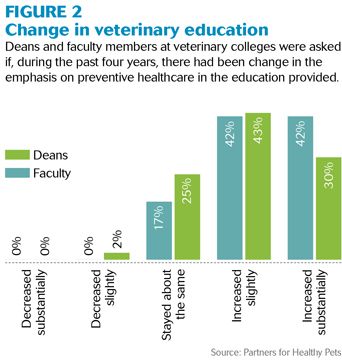Partners for Healthy Pets white paper reports troubling trends
New research indicates no reversal in veterinary visit decline despite economic recovery.
Partners for Healthy Pets, a consortium of professional and industry organizations that advocates for broader acceptance of preventive pet healthcare, recently initiated a research effort to determine whether there had been any change in pet owner attitudes in recent years. Unfortunately, some of the most troubling trends uncovered several years ago are still a factor-or have gotten worse.
In this research, the partnership commissioned an update of certain pieces of the 2011 Bayer Veterinary Care Usage Study, which looked at reasons for the decade-long decline in veterinary visits. Unfortunately, the 2014 study found that “visits to veterinarians have not increased and that pet owner attitudes about preventive healthcare for their animals have either changed very little or were less favorable,” according to a white paper released by the partnership in July during the 2014 American Veterinary Medical Association (AVMA) annual convention. In particular, respondents reported stress associated with veterinary visits, cost concerns and reliance on the Internet all at markedly higher levels (see Table 1).

However, it's not all bad news. The partnership also initiated a study of “veterinary profession stakeholders” to gauge their commitment to preventive care for pets and implementation of corresponding strategies in practice. According to the white paper, veterinary team members (veterinarians, technicians and practice managers) largely say they're placing an increased emphasis on preventive healthcare for pets in their practices and communicating that to pet owners. Veterinary school officials also report a much higher commitment to this aspect of veterinary education than in previous years (see Figures 1 and 2).

The partnership is taking a long-tail view of the situation, hoping that the many initiatives designed to increase pet owners' commitment to preventive healthcare for their pets will still bear fruit in coming years.

“These results make it clear that the pet-owning public still needs to be broadly informed and convinced of the benefits and value of regular healthcare visits for their animals,” the white paper reads. “To encourage regular healthcare visits, practice teams need to not only overcome the practical barriers that pet owners have identified but also look for opportunities to make themselves an essential and relevant alternative to ‘Dr. Google.'”
See partnersforhealthypets.org for the full white paper.